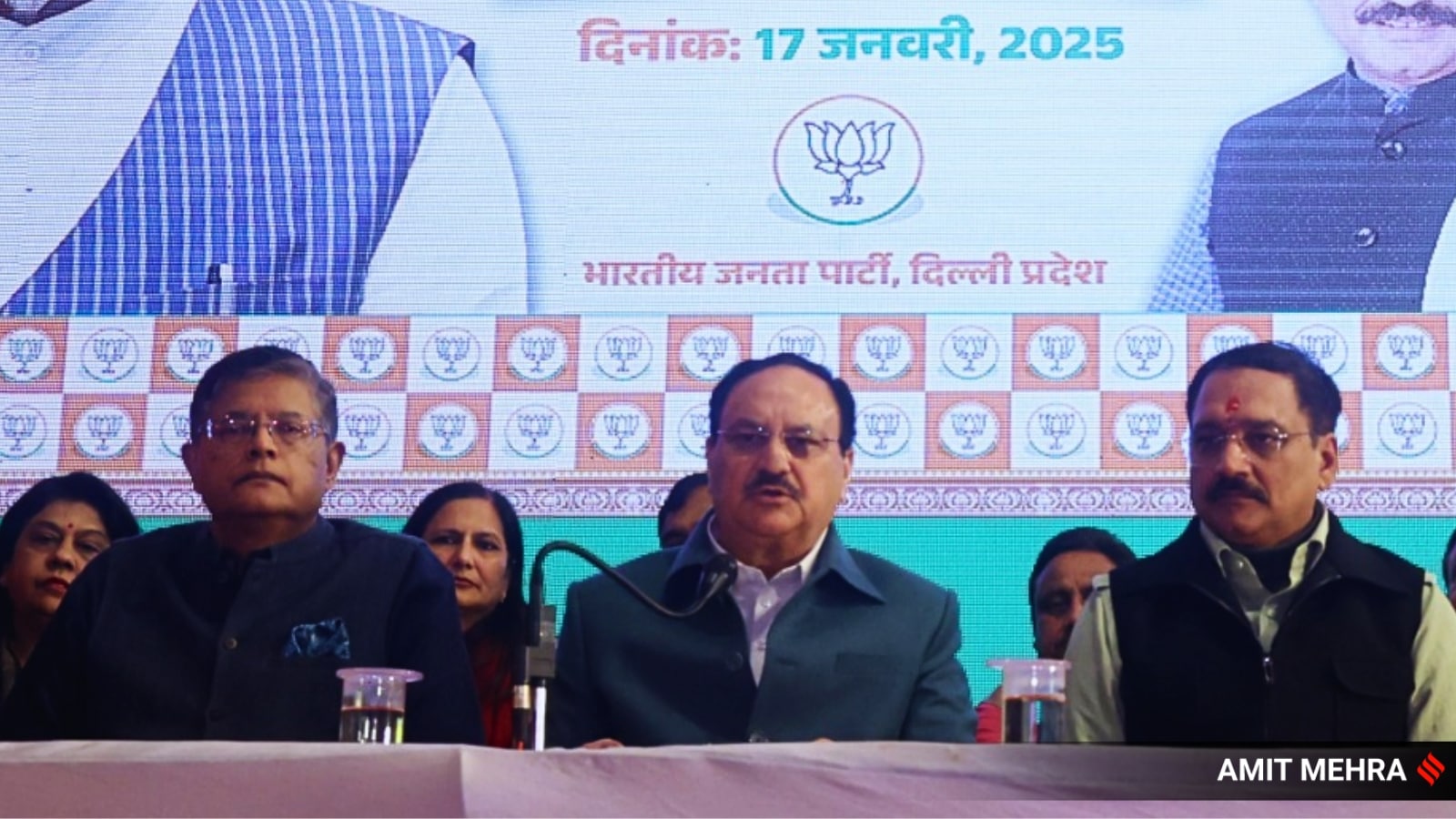 |
|
The Bharatiya Janata Party (BJP) released its manifesto for the upcoming Delhi elections, outlining a range of welfare schemes aimed at securing its victory. The centerpiece of the manifesto is a monthly cash payout of Rs 2,500 for eligible women, a move mirroring similar programs implemented in BJP-ruled states like Maharashtra and Madhya Pradesh. This initiative, along with other proposed benefits, has sparked a heated exchange between the BJP and its main rival, the Aam Aadmi Party (AAP). The BJP’s announcement immediately drew sharp criticism from AAP convenor and former Delhi Chief Minister Arvind Kejriwal, who accused the party of plagiarism and hypocrisy. Kejriwal's criticism centers on the BJP's past condemnation of such 'revadis' (freebies) while now embracing similar policies for political gain. The intense political rhetoric underscores the significance of welfare schemes in the Delhi electoral landscape.
The BJP's manifesto extends beyond the women's cash transfer scheme. It proposes significant increases to pensions for senior citizens, aiming to raise the monthly allowance from Rs 2,000 to Rs 2,500 and further to Rs 3,000 for those above 70, widows, and destitute women. The party also pledges to expand access to healthcare through the Ayushman Bharat scheme, aiming to cover 51 lakh people currently excluded. Adding to these promises, the BJP envisions the creation of 'Atal canteens' providing affordable nutritious meals for Rs 5 in slum areas. These commitments, totaling many crores of rupees, highlight the significant financial implications of the proposed schemes and raise questions about their fiscal sustainability.
The BJP's manifesto launch is framed within a narrative of development and good governance. Party president J.P. Nadda emphasized the party's track record and its commitment to fulfilling its promises. Nadda claimed that the manifesto was developed through extensive consultations with approximately 1.8 lakh people, reflecting their needs and aspirations. However, Kejriwal's counter-narrative casts the BJP's initiatives as mere imitations of the AAP's own successful welfare programs. He challenged the BJP to explain why voters should opt for a copycat when the original is already available. This clash of narratives is central to the election campaign and highlights the role of welfare policies in shaping voter preferences.
The political dynamics in Delhi are highly charged, with both the BJP and AAP vying for power. The core of the debate is whether welfare schemes are necessary and desirable, or whether they are merely vote-catching gimmicks. The BJP is attempting to position itself as a party capable of delivering on welfare promises, emphasizing its administrative capabilities and experience. Conversely, the AAP argues that its track record proves its ability to deliver on such pledges, criticizing the BJP for attempting to appropriate its successes. The exchange between the two parties points to a critical issue facing voters – choosing between established parties offering similar welfare schemes but with contrasting governance styles and track records.
Beyond the specifics of the manifesto, the election highlights the critical role of welfare promises in shaping political campaigns in India. The debate extends beyond Delhi, influencing policy discussions across the country. The contrasting approaches of the BJP and AAP exemplify the broader debate on welfare state models and the ethical implications of using such promises to gain political advantage. The effectiveness of these schemes and their impact on the lives of Delhi's residents will be subject to scrutiny post-election. The intense public discourse around this topic reflects the growing importance of social welfare in India's political landscape, emphasizing the need for transparent, accountable and sustainable welfare policies.
Source: BJP releases manifesto: Rs 2,500 for women, more pension for senior citizens, meals for Rs 5
